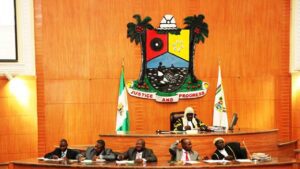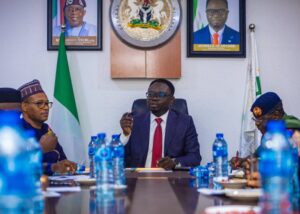
CVR: Why we cannot extend voter registration again – INEC
The Independent National Electoral Commission (INEC) has revealed what will happen if it extends the Continuous Voters Registration (CVR) again.
There has been agitation for an extension of the deadline for the CVR after it ended on Sunday.
However, speaking on the development, the INEC National Commissioner for Information and Voters Education, Mr. Festus Okoye, said granting the extension would frustrate other scheduled activities towards the conduct of the 2023 general elections.
Okoye, who spoke on Arise TV programme on Monday in Abuja, said it was not possible to extend CVR.
According to him: “If every individual, who is legally qualified to register, registers, and we projected that we should give enough time to people. That was why we spaced out the voter registration process over the period of 13 months to enable all registrants, eligible to come to our local government and state offices and register.
“Unfortunately, the deluge, the surge started building up when it was just two weeks to the close of the registration exercise. Based on the surge and the deluge, we extended the voters registration exercise by another month. Not only that, we also deployed additional staff to all the registration areas, we deployed additional INEC machines to all the registration areas.
“We increased the period for registration from 9 in the morning to 5pm and also included Saturdays and Sundays. But unfortunately, we have to bring this process to an end because we cannot go on ad infinitum, and our electoral process is constitutionally and legally circumscribed and if we continue with the CVR exercise, ad infinitum, it will do damage to our timelines and schedules of activities for the 2023 general elections.”



